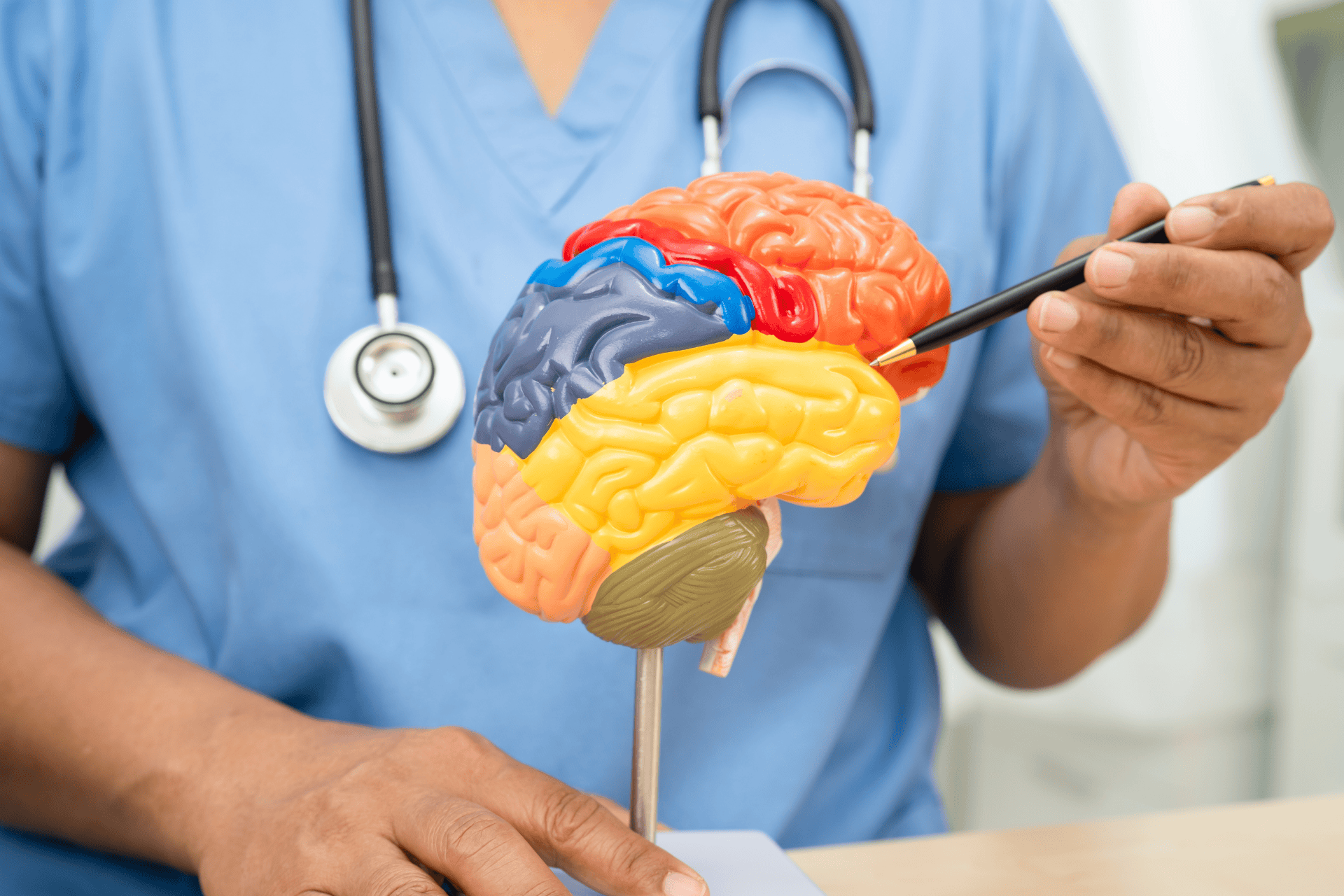GLP1 and Alzheimer’s Studies - What We Know
Understanding GLP1 and Its Role in HealthGlucagon-like peptide-1, commonly known as GLP-1, is a hormone that plays a crucial role in regulating blood sugar levels and [...]
Read More
Medically reviewed by Alan Lucks | MD, Alan Lucks MDPC Private Practice - New York on October 26th, 2025.
GLP-1 receptor agonists like semaglutide and liraglutide, originally developed for diabetes, are showing promise in clinical trials for slowing cognitive decline by reducing brain inflammation and promoting new neural growth.
Type 2 diabetes and insulin resistance increase Alzheimer's risk by disrupting brain glucose metabolism—the brain relies on glucose for 20% of the body's total energy needs.
Early research suggests maintaining good diabetes control may reduce dementia risk by up to 30%, as chronic high blood sugar damages blood vessels that supply the brain.
Current human clinical trials are testing whether weekly GLP-1 injections can preserve memory and cognitive function in people with early-stage Alzheimer's disease.
The brain contains GLP-1 receptors in areas critical for memory formation, including the hippocampus, which may explain why these diabetes medications show neuroprotective effects.
Glucagon-like peptide-1, commonly known as GLP-1, is a hormone that plays a crucial role in regulating blood sugar levels and appetite. Originally studied for its benefits in managing type 2 diabetes, GLP1 has gained significant attention in recent years for its potential effects beyond metabolic health. Researchers are now exploring how GLP1 receptor agonists, drugs that mimic the hormone’s action, might influence brain health, particularly in relation to neurodegenerative diseases such as Alzheimer’s.
Alzheimer’s disease is a progressive neurological disorder characterized by memory loss, cognitive decline, and behavioral changes. It affects millions of people worldwide and currently has no cure. As the search for effective treatments continues, GLP1-based therapies have emerged as a promising area of research due to their neuroprotective properties observed in preclinical studies. These studies suggest that GLP1 may help reduce inflammation and oxidative stress in the brain, two key factors that contribute to the progression of Alzheimer’s disease. Additionally, GLP1 has been shown to promote neurogenesis (the process of generating new neurons), which could potentially counteract the cognitive decline associated with aging and neurodegeneration.
Furthermore, the relationship between GLP1 and cognitive function extends beyond Alzheimer’s. Emerging research indicates that GLP1 may also play a role in enhancing learning and memory processes in healthy individuals. This has led scientists to investigate whether GLP1 receptor agonists could be utilized not only as a treatment for diabetes and Alzheimer’s but also as cognitive enhancers for those experiencing age-related cognitive decline. The implications of these findings are vast, as they open new avenues for therapeutic interventions that could improve the quality of life for individuals at risk of cognitive impairment. As clinical trials continue to explore the full spectrum of GLP-1's benefits, the hope is that these insights will pave the way for innovative strategies in both metabolic and neurological health management.
 What Current Research Says About GLP1 and Alzheimer’s
What Current Research Says About GLP1 and Alzheimer’sSeveral studies have demonstrated that GLP1 receptor agonists may protect brain cells from damage caused by Alzheimer’s pathology. These drugs appear to reduce inflammation, decrease the buildup of amyloid plaques, and improve insulin signaling in the brain, all factors linked to the progression of Alzheimer’s disease. For example, animal models treated with GLP1 agonists showed improved memory and cognitive function compared to untreated counterparts. This neuroprotective effect is thought to stem from the ability of GLP1 to modulate neuronal survival pathways, thereby enhancing the resilience of neurons in the face of toxic insults associated with Alzheimer’s.
While these findings are promising, it is important to note that most evidence comes from laboratory and animal studies. Human clinical trials are still in the early stages, but initial results suggest potential cognitive benefits for patients with mild cognitive impairment or early Alzheimer’s symptoms. Furthermore, researchers are investigating the mechanisms behind GLP1’s effects on neurodegeneration, including its role in promoting neurogenesis and synaptic plasticity, which are crucial for learning and memory. Understanding these mechanisms may pave the way for developing more targeted therapies that harness the protective properties of GLP1.
Several pharmaceutical companies and research institutions are conducting clinical trials to evaluate the safety and effectiveness of GLP1 receptor agonists in Alzheimer’s patients. These trials aim to determine whether these medications can slow disease progression or improve quality of life. The results of these studies will be critical in understanding how GLP1 therapies might be integrated into Alzheimer’s treatment protocols in the future. In addition to assessing cognitive outcomes, researchers are also monitoring biomarkers of disease progression, such as changes in amyloid and tau levels in the brain, to gain insights into the biological impact of GLP1 treatment.
Moreover, some trials are exploring the potential of combining GLP1 receptor agonists with other therapeutic strategies, such as anti-amyloid therapies or lifestyle interventions, to enhance overall efficacy. This multifaceted approach reflects a growing recognition that Alzheimer’s disease is complex and may require a combination of treatments to effectively manage its symptoms and progression. As these trials unfold, they promise to deepen our understanding of how GLP1 can be utilized not just as a standalone treatment but as part of a comprehensive strategy to combat Alzheimer’s disease.
For individuals concerned about Alzheimer’s, the emerging research on GLP1 offers a hopeful perspective. While it is too soon to recommend GLP1 drugs specifically for Alzheimer’s prevention or treatment, staying informed about new developments is valuable. Maintaining a healthy lifestyle, managing metabolic conditions like diabetes, and consulting healthcare professionals remain essential strategies. Engaging in regular physical activity, adhering to a balanced diet rich in antioxidants, and fostering social connections can also play a significant role in cognitive health. These lifestyle factors not only contribute to overall well-being but may also help mitigate the risk of developing neurodegenerative diseases.
Those interested in exploring innovative healthcare options, including telehealth consultations, can benefit from services like Doctronic.ai. Doctronic offers AI-powered primary care and telehealth video visits with licensed doctors 24/7, providing convenient access to medical advice and treatment across all 50 states. This can be especially helpful for patients managing chronic conditions that may influence Alzheimer’s risk. Furthermore, caregivers can utilize these services to seek guidance on best practices for supporting their loved ones, ensuring they have access to the latest information and resources in the field of Alzheimer's care.
Telehealth platforms such as Doctronic.ai are transforming the way patients receive care. With over 10 million users, Doctronic combines advanced AI with real doctors to deliver personalized, affordable healthcare quickly. Patients can discuss symptoms, get second opinions, and receive treatment recommendations without leaving home. This accessibility is crucial for elderly patients or those with mobility challenges who may be at higher risk for cognitive decline. Moreover, telehealth services often provide a more comfortable environment for patients, reducing the anxiety that can accompany in-person visits, especially for those dealing with memory issues or other cognitive impairments.
Additionally, telehealth can facilitate ongoing monitoring and management of conditions that may contribute to Alzheimer's risk, such as hypertension and depression. Regular virtual check-ins with healthcare providers can help ensure that patients remain engaged in their health management, allowing for timely adjustments to treatment plans as needed. As technology continues to advance, the potential for telehealth to integrate with wearable devices and health apps could further enhance patient care, providing real-time data that can inform clinical decisions and promote proactive health management.
 Future Directions and Research Priorities
Future Directions and Research PrioritiesThe scientific community continues to prioritize large-scale, long-term studies to better understand GLP1’s role in Alzheimer’s disease. These investigations will clarify optimal dosing, treatment duration, and patient selection criteria. Researchers are also exploring whether combining GLP1 therapies with other interventions could enhance outcomes.
As research progresses, it is expected that new insights will emerge about how metabolic health and brain health intersect. This could lead to more holistic approaches to preventing and managing Alzheimer’s disease.
Innovations in artificial intelligence, like those powering Doctronic.ai, are playing an increasingly important role in medical research and patient care. AI algorithms can synthesize the latest peer-reviewed medical knowledge rapidly, helping both patients and doctors stay current with evolving treatment options. This integration of technology and medicine is a key factor in advancing personalized care for complex conditions such as Alzheimer’s.
The investigation of GLP1 receptor agonists as a potential treatment for Alzheimer’s disease represents a promising frontier in medical science. While definitive answers are still forthcoming, early research offers hope that these therapies could one day complement existing strategies to combat cognitive decline.
In the meantime, individuals seeking reliable, modern healthcare solutions can turn to platforms like Doctronic.ai for accessible, expert medical guidance. With AI-driven insights and round-the-clock telehealth services, Doctronic is helping to revolutionize patient care in an era where timely information and personalized attention are more important than ever.
As we look toward new horizons in Alzheimer's research and treatment, Doctronic stands at the forefront, offering a revolutionary approach to medical care. Embrace the speed, intelligence, and personalized attention of our AI-driven platform. Whether you're seeking insights into GLP1's potential or managing your overall health, Doctronic provides quality care in seconds, tapping into the most current, peer-reviewed medical research. Remember, our AI doctor is always available, with limitless patience and a perfect memory for every detail of your health history. Skip the line. Talk to an AI Doctor Now, for free.
While research into GLP-1 medications for Alzheimer's prevention is still experimental, the strong connection between metabolic health and brain health makes diabetes management crucial for cognitive protection. If you're concerned about memory changes or the intersection of diabetes and brain health, Doctronic can help you understand your symptoms and treatment options.
Understanding GLP1 and Its Role in HealthGlucagon-like peptide-1, commonly known as GLP-1, is a hormone that plays a crucial role in regulating blood sugar levels and [...]
Read More